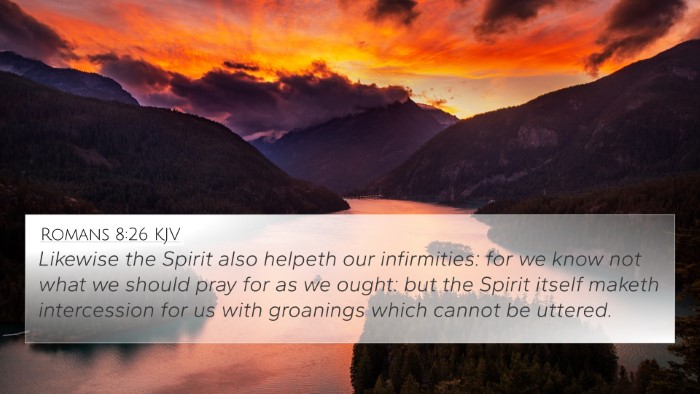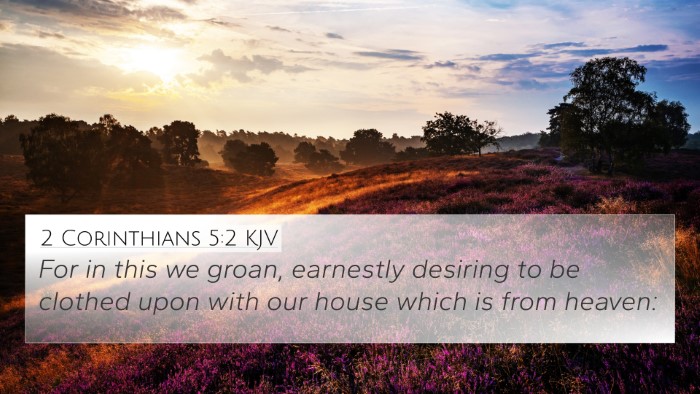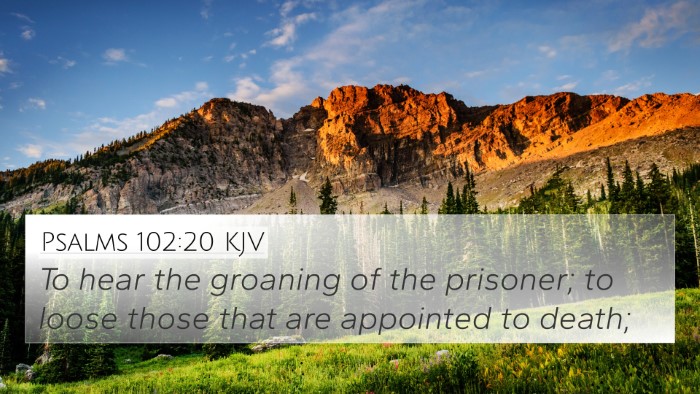Psalms 38:9 - Meaning and Interpretation
Psalms 38:9 states: "Lord, all my desire is before thee; and my groaning is not hid from thee." This verse expresses a deep sense of vulnerability and earnestness in communication with God. Below is a detailed summary, drawing insights from various public domain commentaries.
Overview of Psalms 38
The context of Psalms 38 reveals a penitential heart of David as he grapples with sin, suffering, and the recognition of his desperation before God. This specific verse highlights the intimate relationship one can have with the Lord through prayer and supplication.
Insights from Commentaries
1. Matthew Henry
Matthew Henry emphasizes the transparency one has before God. He notes that the psalmist acknowledges that God is fully aware of his desires and struggles. The groaning reflects a heart burdened by sin, illustrating how intimate prayer can reveal one’s innermost feelings.
2. Albert Barnes
Albert Barnes interprets this verse as a statement of complete exposure to God’s gaze. He suggests that David’s acknowledgment serves to show reliance on divine compassion. The 'groaning' signifies both physical and emotional pain, indicating a petition for relief from distress.
3. Adam Clarke
Adam Clarke points out that the verse reflects a spiritual longing for connection with God. He asserts that the desire mentioned transcends mere wishes; it is a profound yearning for God's presence and support in times of despair.
Bible Verse Cross-References
This verse can be cross-referenced with the following biblical texts that reinforce its themes:
- Psalm 139:2 - "Thou knowest my downsitting and mine uprising, thou understandest my thought afar off." This emphasizes that God is aware of our every emotion.
- Lamentations 3:55-56 - "I called upon thy name, O Lord, out of the low dungeon. Thou hast heard my voice: hide not thine ear at my breathing, at my cry." This connection shows God's attentiveness to our pleas.
- Matthew 6:8 - "Be not ye therefore like unto them: for your Father knoweth what things ye have need of, before ye ask him." This verse relates to God’s prior knowledge of our desires.
- Romans 8:26 - "Likewise the Spirit also helpeth our infirmities: for we know not what we should pray for as we ought: but the Spirit itself maketh intercession for us with groanings which cannot be uttered." This highlights the theme of divine communication through prayer.
- 1 Peter 5:7 - "Casting all your care upon him; for he careth for you." This further corroborates the idea of trusting God with our burdens.
- Philippians 4:6-7 - "Be careful for nothing; but in every thing by prayer and supplication with thanksgiving let your requests be made known unto God." This encourages believers to communicate their desires to God.
- Hebrews 4:15-16 - "For we have not an high priest which cannot be touched with the feeling of our infirmities; but was in all points tempted like as we are, yet without sin." This shows Christ’s empathy towards human suffering.
Thematic Bible Verse Connections
In reading Psalms 38:9, we can observe several themes that are prevalent throughout Scripture:
- Desire for God’s Presence - Many psalms express a longing for God, reflecting a recurring desire among believers for divine connection.
- Human Suffering - The theme of suffering and the search for balm in God’s words can be found throughout the afflicted books in the Bible.
- Prayer and Supplication - The consistent call to prayer and the act of crying out to God embodies a core principle seen in both Old and New Testaments.
- Forgiveness and Restoration - David’s approach is both penitential and hopeful, underscoring God's willingness to forgive.
Application and Understanding
This verse serves as a reminder that we can come before God with our deepest desires and struggles, knowing that He already understands our situation. The emotional weight carried in these words fosters a deeper understanding of God’s compassion and readiness to help in times of need.
Engaging in Comparative Bible verse analysis and recognizing connections between Bible verses like this deepen our understanding of God’s nature, cultivating a richer spiritual life.
Conclusion
Psalms 38:9 illuminates the relationship between the believer and God, emphasizing the importance of being transparent about our struggles. Through tools for Bible cross-referencing and its cross-references, readers can find diverse insights that ultimately lead to a more profound understanding of their faith journey.










